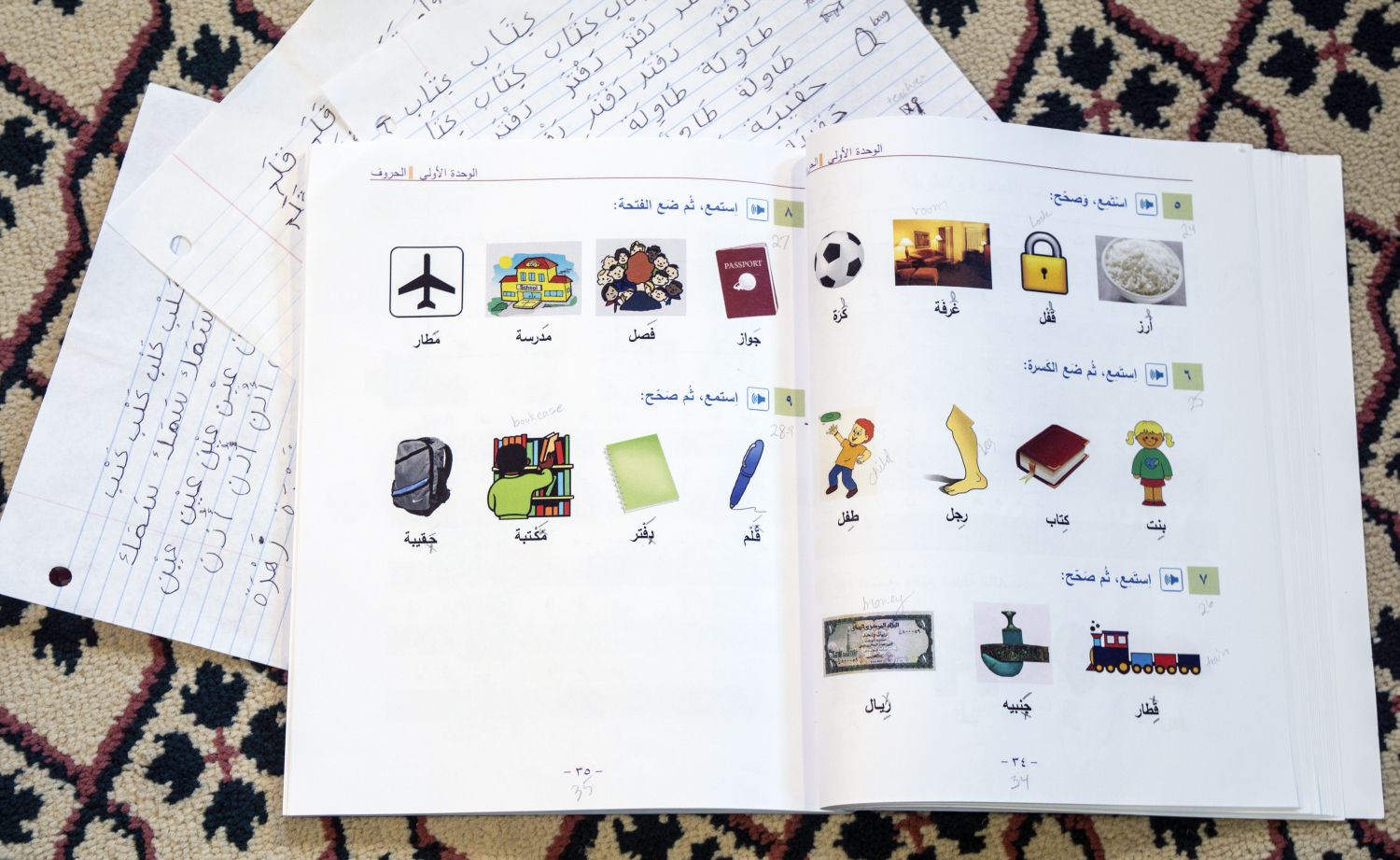Usually I like to publish a post once a week, but lately I’ve been neglecting Penny Letters. Here’s why.
It all started several months ago, when my friend Andrea asked me, “Susan, how I can I pray for you?”
We were standing outside on a gravel driveway, after a bridal shower for a mutual friend. Andrea’s own wedding was only a few weeks away, and I was impressed that she was asking about me. I said, “Well I’m kind of bored. I need a challenge.”
COVID has halted a lot of activities this year, and I have a low stress job, live with my parents, and am healthy, so that was the best personal prayer request I had.
A few weeks later, while she was on her honeymoon, Andrea messaged me and several others and asked if we wanted to join her and her new husband in taking an online Arabic class.
“Well, I did mention I want a challenge…” I messaged back.
Years ago, I made short-lived attempts to learn Spanish and German. Since then, I pretty much gave up on the thought of learning another language. Just not for me, I figured. I lived outside the United States for two years, but that was in Ireland, and I was very happy not to have to learn another language.
Still, after Andrea told me about the class, which would be once a week for six months, I decided it couldn’t hurt to look into it. YouTube was full of free resources. I grabbed a notebook and pen and started with alif, ba, and ta, the first letters of the Arabic alphabet. I learned to write my name (pronounced Suzan) and started memorizing some basic words.
I realize that while thirty-three might not be the ideal age to start learning another language, it’s still quite possible. It may take a few days of hearing a word several times each day, but my brain can retain words, and for me, once a word is in my brain, it’s in. When I was a teenager, the memorizing might have gone better, but YouTube did not exist and I would have had to use cumbersome cassette tapes or CDs from the library. Plus, I have much more patience now.
We had our first class on Zoom about a month ago. The instructor is in Yemen, and because we have to work with his time schedule, our class time is 4:30 a.m. So every Saturday morning for two hours, six sleepy Americans try to stumble through words and grammar rules and write Arabic script from right to left.
The rest of the week, I spend about an hour per day practicing speaking and writing, using Duolingo, a flash card app, YouTube videos, and the workbook and MP3 files from the course.
How far will I actually get? I don’t know. Though it’s easier than a tonal language like Chinese, Modern Standard Arabic is still a tough nut for an English-speaker to crack. Will I ever go to an Arabic-speaking country for outreach, like my friends plan to? I don’t know the answer to that either. COVID is changing international travel, and while I think the doors will eventually re-open, God alone knows the future.
In the meanwhile, I’ve found a good way to use a quiet season of life. Language-learning sharpens your brain and teaches you new respect for other cultures. It improves your focus and memory. Studying Arabic has spared me from hours of watching the news and worrying (2020 has been a hard year for a news junkie like me.) And to my surprise— it’s fun!
Note: If you look carefully at my Arabic workbook in the picture on the top of this post, you can see the pages turn the opposite way of English books.


Very interesting! That is a real challenge!
Yes, it certainly is! Thanks for commenting.
Oh wow! Good for you!! I have some friends that speak Arabic and it’s such a confusing but neat language☺
Yes, the adjectives follow the words they describe, you add suffixes instead of using words like my, your, his, and her and I’m only scratching the surface, I know! Thanks for commenting.